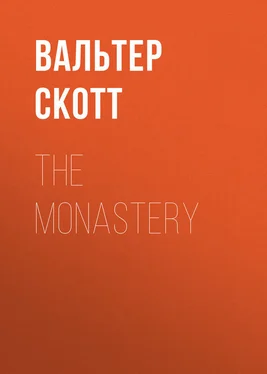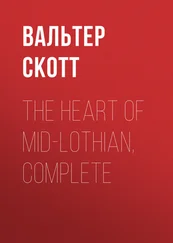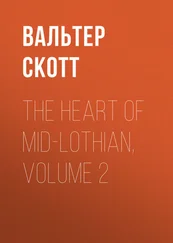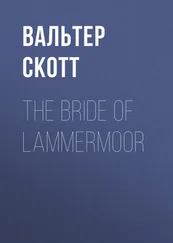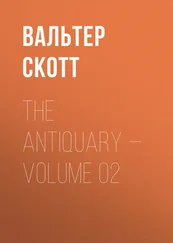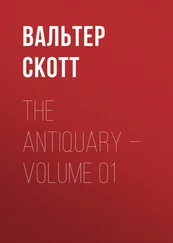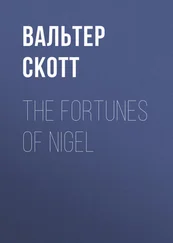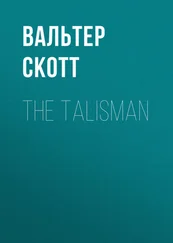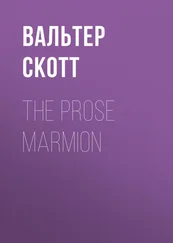Вальтер Скотт - The Monastery
Здесь есть возможность читать онлайн «Вальтер Скотт - The Monastery» — ознакомительный отрывок электронной книги совершенно бесплатно, а после прочтения отрывка купить полную версию. В некоторых случаях можно слушать аудио, скачать через торрент в формате fb2 и присутствует краткое содержание. Жанр: foreign_antique, foreign_prose, Альтернативная история, на английском языке. Описание произведения, (предисловие) а так же отзывы посетителей доступны на портале библиотеки ЛибКат.
- Название:The Monastery
- Автор:
- Жанр:
- Год:неизвестен
- ISBN:нет данных
- Рейтинг книги:4 / 5. Голосов: 1
-
Избранное:Добавить в избранное
- Отзывы:
-
Ваша оценка:
- 80
- 1
- 2
- 3
- 4
- 5
The Monastery: краткое содержание, описание и аннотация
Предлагаем к чтению аннотацию, описание, краткое содержание или предисловие (зависит от того, что написал сам автор книги «The Monastery»). Если вы не нашли необходимую информацию о книге — напишите в комментариях, мы постараемся отыскать её.
The Monastery — читать онлайн ознакомительный отрывок
Ниже представлен текст книги, разбитый по страницам. Система сохранения места последней прочитанной страницы, позволяет с удобством читать онлайн бесплатно книгу «The Monastery», без необходимости каждый раз заново искать на чём Вы остановились. Поставьте закладку, и сможете в любой момент перейти на страницу, на которой закончили чтение.
Интервал:
Закладка:
Household stuff there was little or none to remove or care for; an old pony which had escaped the plunderers, owing partly to its pitiful appearance, partly from the reluctance which it showed to be caught by strangers, was employed to carry the few blankets and other trifles which they possessed. When Shagram came to his master’s well-known whistle, he was surprised to find the poor thing had been wounded, though slightly, by an arrow, which one of the forayers had shot off in anger after he had long chased it in vain.
“Ay, Shagram,” said the old man, as he applied something to the wound, “must you rue the lang-bow as weel as all of us?”
“What corner in Scotland rues it not!” said the Lady of Avenel.
“Ay, ay, madam,” said Martin, “God keep the kindly Scot from the cloth-yard shaft, and he will keep himself from the handy stroke. But let us go our way; the trash that is left I can come back for. There is nae ane to stir it but the good neighbours, and they – ”
“For the love of God, goodman,” said his wife, in a remonstrating tone, “haud your peace! Think what ye’re saying, and we hae sae muckle wild land to go over before we win to the girth gate.”
The husband nodded acquiescence; for it was deemed highly imprudent to speak of the fairies, either by their title of good neighbours or by any other, especially when about to pass the places which they were supposed to haunt.
{Footnote: This superstition continues to prevail, though one would suppose it must now be antiquated. It is only a year or two since an itinerant puppet show-man, who, disdaining to acknowledge the profession of Gines de Passamonte, called himself an artist from Vauxhall, brought a complaint of a singular nature before the author, as Sheriff of Selkirkshire. The singular dexterity with which the show-man had exhibited the machinery of his little stage, had, upon a Selkirk fair-day, excited the eager curiosity of some mechanics of Galashiels. These men, from no worse motive that could be discovered than a thirst after knowledge beyond their sphere, committed a burglary upon the barn in which the puppets had been consigned to repose, and carried them off in the nook of their plaids, when returning from Selkirk to their own village.
“But with the morning cool reflection came.”
The party found, however, they could not make Punch dance, and that the whole troop were equally intractable; they had also, perhaps, some apprehensions of the Rhadamanth of the district; and, willing to be quit of their booty, they left the puppets seated in a grove by the side of the Ettrick, where they were sure to be touched by the first beams of the rising sun. Here a shepherd, who was on foot with sunrise to pen his master’s sheep on a field of turnips, to his utter astonishment, saw this train, profusely gay, sitting in the little grotto. His examination proceeded thus: —
Sheriff . You saw these gay-looking things? what did you think they were?
Shepherd . Ou, I am no that free to say what I might think they were.
Sheriff . Come, lad, I must have a direct answer – who did you think they were?
Shepherd . Ou, sir, troth I am no that free to say that I mind wha I might think they were.
Sheriff . Come, come sir! I ask you distinctly, did you think they were the fairies you saw?
Shepherd . Indeed, sir, and I winna say but I might think it was the Good Neighbours.
Thus unwillingly was he brought to allude to the irritable and captious inhabitants of fairy land.}
They set forward on their pilgrimage on the last day of October. “This is thy birthday, my sweet Mary,” said the mother, as a sting of bitter recollection crossed her mind. “Oh, who could have believed that the head, which, a few years since, was cradled amongst so many rejoicing friends, may perhaps this night seek a cover in vain!”
The exiled family then set forward, – Mary Avenel, a lovely girl between five and six years old, riding gipsy fashion upon Shagram, betwixt two bundles of bedding; the Lady of Avenel walking by the animal’s side; Tibb leading the bridle, and old Martin walking a little before, looking anxiously around him to explore the way.
Martin’s task as guide, after two or three miles’ walking, became more difficult than he himself had expected, or than he was willing to avow. It happened that the extensive range of pasturage, with which he was conversant, lay to the west, and to get into the little valley of Glendearg he had to proceed easterly. In the wilder districts of Scotland, the passage from one vale to another, otherwise than by descending that which you leave, and reascending the other, is often very difficult. – Heights and hollows, mosses and rocks intervene, and all those local impediments which throw a traveller out of his course. So that Martin, however sure of his general direction, became conscious, and at length was forced reluctantly to admit, that he had missed the direct road to Glendearg, though he insisted they must be very near it. “If we can but win across this wide bog,” he said, “I shall warrant ye are on the top of the tower.” But to get across the bog was a point of no small difficulty. The farther they ventured into it, though proceeding with all the caution which Martin’s experience recommended, the more unsound the ground became, until, after they had passed some places of great peril, their best argument for going forward came to be, that they had to encounter equal danger in returning. The Lady of Avenel had been tenderly nurtured, but what will not a woman endure when her child is in danger? Complaining less of the dangers of the road than her attendants, who had been inured to such from their infancy, she kept herself close by the side of the pony, watching its every footstep, and ready, if it should flounder in the morass, to snatch her little Mary from its back. At length they came to a place where the guide greatly hesitated, for all around him was broken lumps of heath, divided from each other by deep sloughs of black tenacious mire. After great consideration, Martin, selecting what he thought the safest path, began himself to lead forward Shagram, in order to afford greater security to the child. But Shagram snorted, laid his ears back, stretched his two feet forward, and drew his hind feet under him, so as to adopt the best possible posture for obstinate resistance, and refused to move one yard in the direction indicated. Old Martin, much puzzled, now hesitated whether to exert his absolute authority, or to defer to the contumacious obstinacy of Shagram, and was not greatly comforted by his wife’s observation, who, seeing Shagram stare with his eyes, distend his nostrils, and tremble with terror, hinted that “he surely saw more than they could see.”
In this dilemma, the child suddenly exclaimed – “Bonny leddy signs to us to come yon gate.” They all looked in the direction where the child pointed, but saw nothing, save a wreath, of rising mist, which fancy might form into a human figure; but which afforded to Martin only the sorrowful conviction, that the danger of their situation was about to be increased by a heavy fog. He once more essayed to lead forward Shagram; but the animal was inflexible in its determination not to move in the direction Martin recommended. “Take your awn way for it, then,” said Martin, “and let us see what you can do for us.”
Shagram, abandoned to the discretion of his own free-will, set off boldly in the direction the child had pointed. There was nothing wonderful in this, nor in its bringing them safe to the other side of the dangerous morass; for the instinct of these animals in traversing bogs is one of the most curious parts of their nature, and is a fact generally established. But it was remarkable, that the child more than once mentioned the beautiful lady and her signals, and that Shagram seemed to be in the secret, always moving in the same direction which she indicated. The Lady of Avenel took little notice at the time, her mind being probably occupied by the instant danger; but her attendants changed expressive looks with each other more than once.
Читать дальшеИнтервал:
Закладка:
Похожие книги на «The Monastery»
Представляем Вашему вниманию похожие книги на «The Monastery» списком для выбора. Мы отобрали схожую по названию и смыслу литературу в надежде предоставить читателям больше вариантов отыскать новые, интересные, ещё непрочитанные произведения.
Обсуждение, отзывы о книге «The Monastery» и просто собственные мнения читателей. Оставьте ваши комментарии, напишите, что Вы думаете о произведении, его смысле или главных героях. Укажите что конкретно понравилось, а что нет, и почему Вы так считаете.
